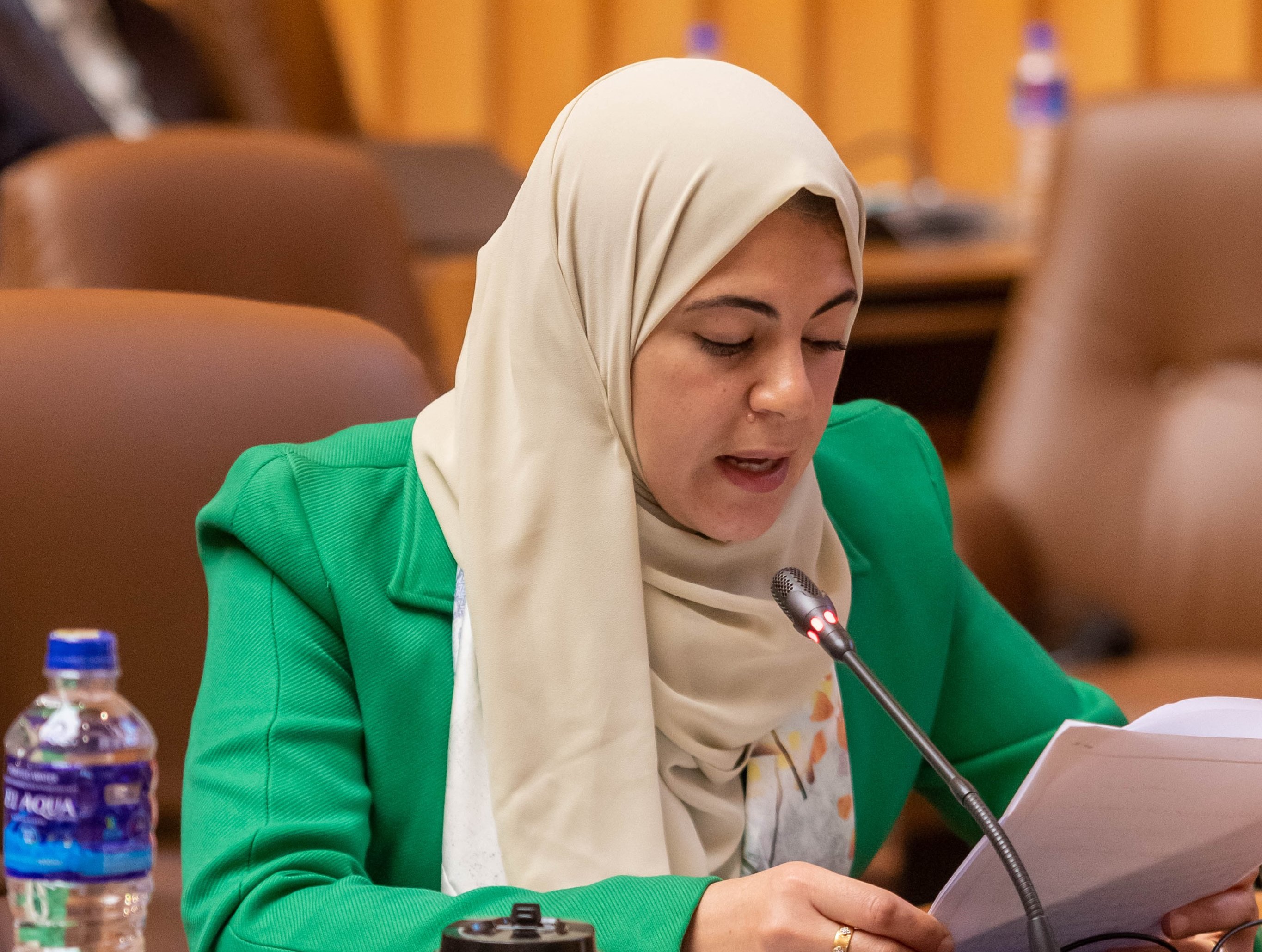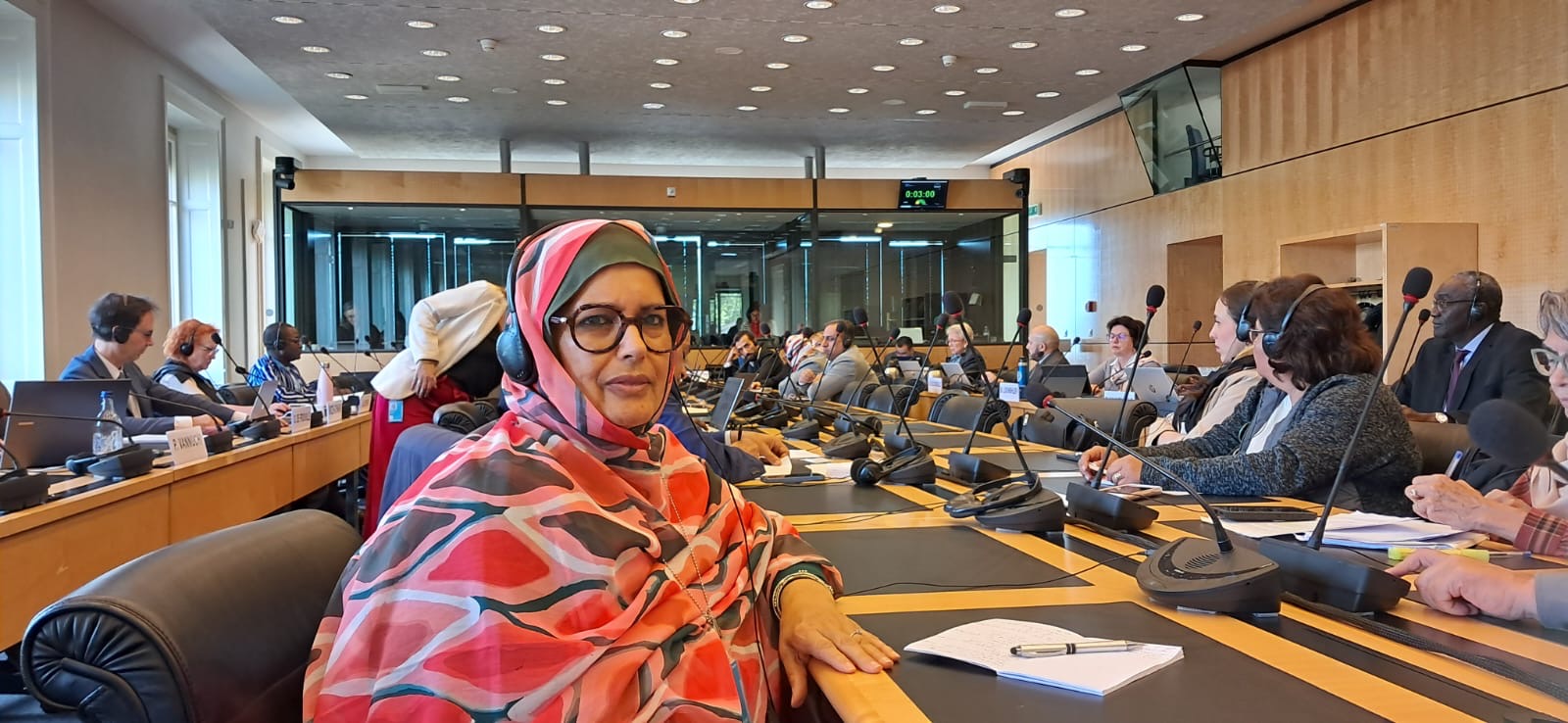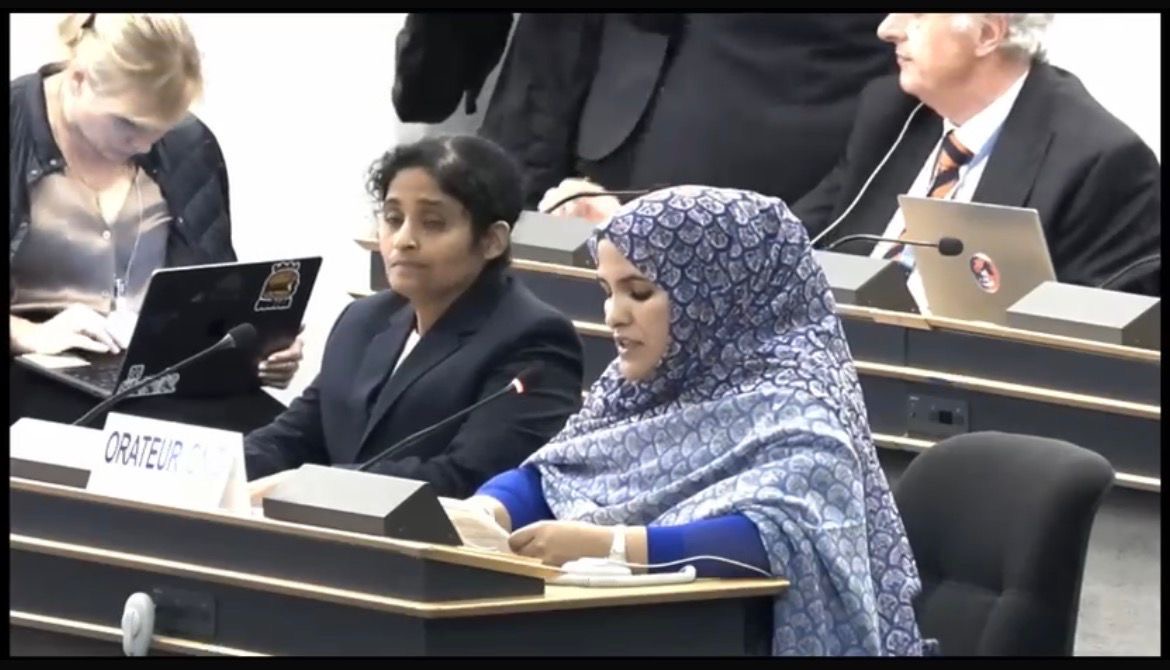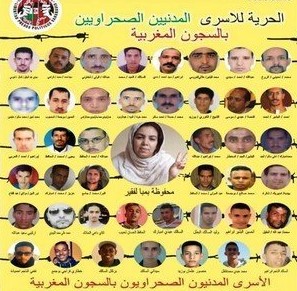Geneva, 1 July 2025 (SPS) – The United Nations Human Rights Council headquarters in Geneva hosted Monday an international symposium focusing on the systematic violations committed by the occupying administration against Sahrawi women in the occupied part of Western Sahara. Diplomats, human rights activists, and university professors participated in the event.
The international symposium, organized on the sidelines of the 59th session of the UN Human Rights Council, which began in mid-June, highlighted the daily oppression and intimidation faced by Sahrawi women in the occupied territories. This suffering stems from their stances and peaceful struggle to defend the dignity and freedom of the Sahrawi people.
The symposium also featured live testimonies from Sahrawi women under occupation, who spoke about widespread violations and recounted horrific experiences of injustice and suffering.
Participants in the symposium called upon the international community and human rights organizations to urgently intervene to stop these violations, protect civilians, and enable the Sahrawi people to exercise their right to self-determination, in accordance with international legitimacy.
In a first-of-its-kind event, a Sahrawi tent was erected inside the UN Human Rights Council headquarters in Geneva, symbolizing resistance and embodying the revolutionary spirit. It represents the distinct identity of the Sahrawi people, expressing their authenticity and role in shaping the unity and cohesion of the Sahrawi people against all colonial attempts to erase Sahrawi identity.
Additionally, a peaceful vigil was organized by the Association of Daughters of Saguia el-Hamra and Rio de Oro in the Place des Nations, in front of the UN Human Rights Council headquarters in Geneva. Demonstrators raised banners urging the Human Rights Council and the international community to urgently intervene to release political prisoners in Moroccan jails and protect Sahrawi civilians in the occupied part of Western Sahara from the oppression practiced by the occupying administration since its military invasion of the region in 1975.
In a statement, Ubi Bouchraya Al-Bachir, the Polisario Front representative to Switzerland, the United Nations, and international organizations in Geneva, affirmed that Geneva has witnessed a series of solidarity activities with the Sahrawi cause over the past two days. This included the screening of the documentary film "Four Days in Western Sahara," which addressed the suffering of the Sahrawi people in Africa's last colony.
He also emphasized the importance of today's international symposium on the systematic violations by the Moroccan occupation against Sahrawi women in Western Sahara. A report on the reality of resilient Sahrawi women was presented. The event was deemed successful by all measures and was animated by American journalist Amy Goodman, Maria Carrión, Executive Director of the Spanish Cultural Association "En el Sahara," and Yakouta Al-Mukhtar, President of the Sahrawi Observatory for Monitoring Western Sahara's Resources.
A group of Sahrawi activists, such as Al-Ghalia Djimi and Sultana Khaya, provided important testimonies documenting the suffering of Sahrawi human rights defenders.
The symposium also saw the participation of diplomats, including the South African Ambassador to the Human Rights Council in Geneva, who reaffirmed his country's firm stance supporting the Sahrawi people's right to self-determination. He also expressed regret over the international community's failure to decolonize Western Sahara and resolve the human rights issue.
In conclusion, the Sahrawi diplomat expressed his hope that this momentum of solidarity with the Sahrawi cause, especially in Geneva, the capital of human rights, will contribute to exerting the necessary pressure on the international community to compel the Moroccan occupation to immediately release Sahrawi political prisoners. He also hoped that the United Nations would assume its responsibilities regarding the continued exclusion of Western Sahara from international human rights oversight, and Morocco's impunity for these violations, which are committed "systematically" and "continuously" in occupied Western Sahara.




